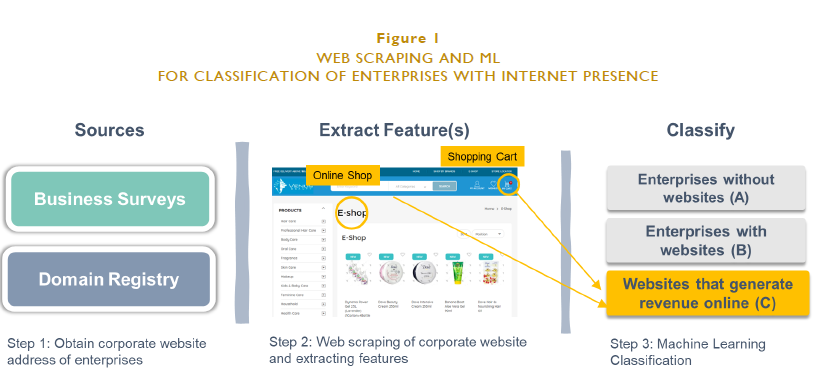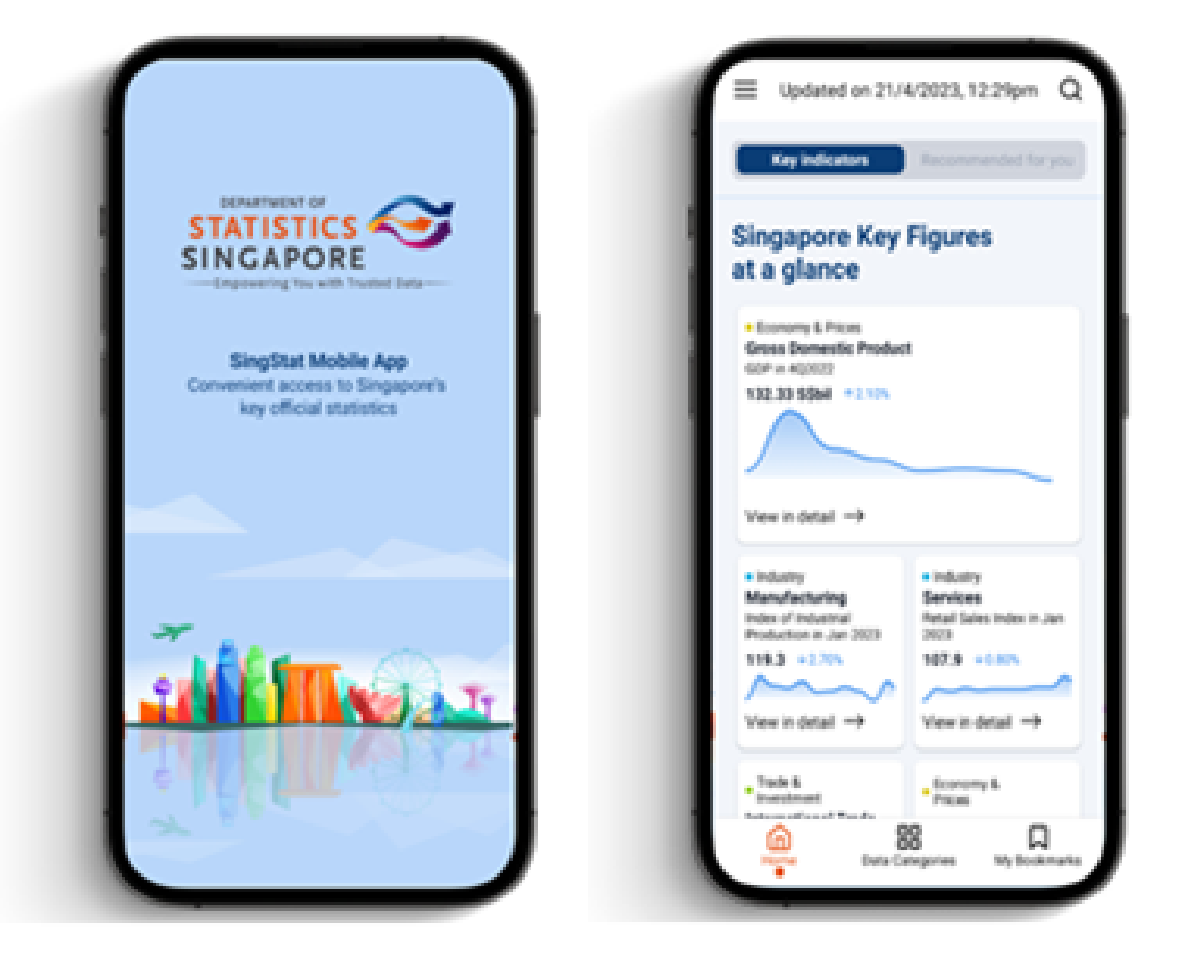
Wong Munmun
Assistant Director
Household, Income and Population
My team compiles data on a range of socio-demographic indicators in the areas of marriages and divorces, births and fertility, and households. I had the opportunity to be seconded to MOH during my time with DOS. During my short stint in the COVID-19 Medical Operations Task Force (Chief Data Office), I supported the containment efforts for migrant workers’ dormitories by processing medical and operations data and liaising with cross-functional teams to digitize conveyance and discharge processes. This experience allowed me to explore and learn about the different areas and functions of the public service learn new statistical software and make new friends along the way. I also learned to adjust to a new work environment, which includes working with new team members and adapting to a different work culture. These skills have given me the confidence to handle challenging deadlines while maintaining a positive attitude now at my current role in DOS.
Prior to this, I was involved in the development and operations of the largest national survey - Census of Population 2020, where I developed various modules to streamline the survey operations. I discovered the importance of being a good team player and effective communication. This has helped me in my role later at MOH when I had to collaborate and communicate confidently with colleagues from other teams. To fresh graduates considering a career in Statistics, I advise gaining as much experience as possible, seeking out mentors, being proactive, asking questions and maintaining enthusiasm!

Tay Junwen
Deputy Director
Input-Output Tables
I am a National Accounts statistician. My main role is to produce high quality statistics and analysis related to the Supply and Use Tables (SUTs), Input-Output Tables (IOTs), as well as the Gross Domestic Product (GDP). I had the opportunity to be attached to Grabtaxi Pte Ltd for 1 year under the Talent Attachment Programme. During my attachment with Grabtaxi Pte Ltd, I was a Data Analytics Manager in the Operational Excellence team. The dedication of the team to improve the organisation’s performance was what most memorable to me. They are open to new technologies and ideas and are willing to put in hours to upgrade the skillsets of the staff. It was a good opportunity for me to find out how private companies leverage data to formulate policies and strategies. After my attachment to Grabtaxi Pte Ltd, I have applied what I have learnt by looking into applying Python and Machine Learning techniques to improve operational efficiency in DOS. I am also working with internal stakeholders on digitalisation initiatives and promoting cross-divisional collaboration efforts in driving process improvement/ automation, bridging skills gaps for the operations teams.
There were transferrable knowledge which I have acquired in DOS that helped me when I worked in Grabtaxi Pte Ltd. Data analytics and statistical knowledge gained in DOS help me transform and translate data into insights for the layman. I was able to put my Tableau knowledge and communication to good use, serving various business teams with weekly insights and trend analysis. Programming skillset also enabled me to pick up other programming languages more quickly to support automation efforts. I enjoy the fact that I am able to employ my analytical skillset and working with numbers in my work, as well as seeing how my work can be linked to various policy and economic studies.
Refer to DOS's Instagram for more features of LIfe@DOS!
Know more about the interesting projects that our Subject Matter Experts are involved in
Sustainable Development Goals (SDGs)

At the United Nations (UN) Sustainable Development Summit in September 2015, countries including Singapore adopted the 2030 Agenda for Sustainable Development. An Inter-Ministry Committee on SDGs (IMC-SDGs) was formed to implement this, co-led by the Ministry of Foreign Affairs (MFA) and Ministry of Sustainability and the Environment (MSE), with DOS providing statistical support and advice.
The 2030 Agenda comprises 17 SDGs with 169 targets across the economic, social and environmental domains, and a total of 248 indicators (known as the Global SDG Indicator Framework, GIF) to measure countries’ progress in ending poverty, improving healthcare and education, reducing inequality, dealing with climate change and spurring economic growth, among others. As the National Statistical Office and a member of the IMC-SDGs, DOS provides the statistical support and advice on measuring and tracking SDG indicators in Singapore under the GIF.
DOS collates SDG data from various government agencies and publish them on the SDG Webpage maintained by DOS. We also collaborate with government agencies to develop the data series or proxies to bridge data gaps. Apart from coordinating national SDG inputs for reporting on Singapore’s progress at the international and regional fora, we also engage the UN Statistics Division and various UN designated custodian agencies (e.g. WHO, UNESCO) to make available more of our data in the international databases.
This project demonstrates DOS’s support in data-based reporting and evidence-based policy decision making. We contribute our statistical capabilities and work in close partnership with key stakeholders to bridge the data gaps and disseminate more SDG data for their use. You may refer to the website for more information.
Experimental Use of Machine Learning and New Data Sources in Updating the Statistical Business Register

DOS uses machine learning (ML) and new data sources to supplement the administrative data and surveys in updating the Statistical Business Register (SBR). To meet increasingly complex data demands, DOS is building its capabilities to tap on new opportunities including big data and advances in technology such as Artificial Intelligence (AI) and ML. DOS undertook pilot projects to use supervised ML to profile enterprises’ internet presence and to develop AI capabilities for extracting information from unstructured financial statements. The information processed by AI and ML is used to supplement the administrative data and surveys in updating the Statistical Business Register (SBR).
Big data offer potential advantages of higher data frequency, greater granularity as well as lower data collection cost. It also provides additional information not available in the existing administrative data and surveys. Using AI and ML, DOS can extract and process such new data sources efficiently for updating SBR and statistical analysis.
DOS undertook a pilot project to text mine web-based data and use supervised ML to profile enterprises’ internet presence. The data were integrated with the SBR to derive new insights and further analyses by enterprise characteristics (e.g., economic activity, enterprise’s age).
Unstructured data from enterprises’ financial statements are a rich source of financial information for statistical compilation. DOS is developing AI capabilities to automatically identify, extract, cleanse and validate the required information from financial statements. The information extracted by AI can be used to supplement existing financial information in the SBR for compilation of economic and business indicators.
The pilot projects demonstrated the feasibility and benefits for leveraging AI and ML to tap on newer data sources for DOS to enhance the information in the SBR.
Enhanced SingStat Mobile App

The SingStat Mobile App provides public users with convenient access to Singapore’s key official statistics while on-the-go. The app has up-to-date data for over 250 commonly referenced indicators released by DOS, numerous other government agencies and the ASEAN Secretariat. The SingStat Mobile App is available for free download on Apple App Store and Android Play Store.
In meeting the evolving needs of the wide range of data users, the enhanced SingStat Mobile App aims to provide a more user-centric and user-friendly experience, with the use of advanced mobile technologies. New and improved features facilitate convenient access to data anytime and anywhere.
The User Experience Design (UXD) study was conducted to gather feedback from app users through interviews, surveys and crowd sourcing via CrowdTaskSG. The UXD was critical to finding out which functionalities our users wanted us to retain, their pain-points to address, and their expectations for the enhanced app. A prototype was then developed, and usability testing was carried out with our users to further finetune our app’s offerings. User stories on the functionalities and features enabled the app development using the agile approach through multiple sprints. A beta version was released in March 2023 allowing yet another round of user feedback and further improvements.
Some of the new features in the enhanced app include enabling users to indicate their profile and data interests to view tailored data recommendations; searching for data easily with the keyword search; bookmarking customised charts for ease of access in the future; as well as referencing additional information such as related publications/ methodologies and links to historical series in the SingStat Table Builder.
The enhanced SingStat Mobile App is available for download on Apple App Store and Google Play Store. DOS will continue to gather feedback from our app users with the aim of further enhancing their user-friendly experience.
DOS constantly explores new ways to tap on the latest digital technology to reduce workload on data collection/compilation and improve work productivity. Watch this space as more details of the project will be shared when available!